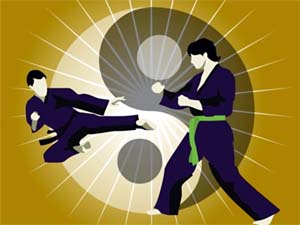Dec 26, 2025
Dec 26, 2025
by Ch'onsa Kim
 The martial arts have always been deeply rooted in Buddhism and Taoist practice. This is evident in the warrior codes, precepts and tenants of the various martial arts traditions. The following precepts are combined from the various warrior mind philosophies that I have been taught during the 28 years of my training in martial arts. The original sources are unknown to me. When I am often questioned about the violence and negative karma that may be generated by training in an art of war, I find myself reflecting back to these words that I have learned to keep close to my heart. These words that remind me, that the martial arts, although translated literally to mean "the art of war", is truly an art of peace.
The martial arts have always been deeply rooted in Buddhism and Taoist practice. This is evident in the warrior codes, precepts and tenants of the various martial arts traditions. The following precepts are combined from the various warrior mind philosophies that I have been taught during the 28 years of my training in martial arts. The original sources are unknown to me. When I am often questioned about the violence and negative karma that may be generated by training in an art of war, I find myself reflecting back to these words that I have learned to keep close to my heart. These words that remind me, that the martial arts, although translated literally to mean "the art of war", is truly an art of peace.
The Warrior strives to reach above himself, his false perceptions, his adversaries. His highest achievement is not one of victory, but one of absolute truth.
01-Oct-2000
More by : Ch'onsa Kim